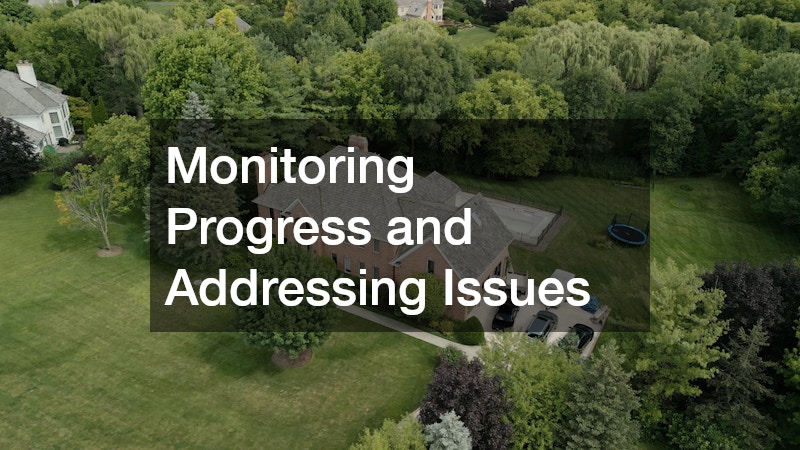When embarking on a roofing project, selecting a professional roofing contractor is crucial for ensuring a successful outcome. A professional contractor not only brings expertise but also provides peace of mind for homeowners. Prior to starting a roofing project, it’s important to consider the scope, costs, and outcomes you expect, as well as the legal requirements involved.
Having the right tools and information can make the process much smoother, ensuring a partnership founded on transparency and trust. Homeowners should be prepared to invest time in understanding the process, as it will help in making informed decisions along the way.
This article serves as a guide, providing a checklist that covers key aspects of hiring and working with roofing contractors.
Choosing the Right Roofing Contractor
Researching and Evaluating Contractors
One of the first steps in choosing the right roofing contractor involves conducting thorough research into potential candidates. This includes checking references, reading online reviews, and verifying credentials such as licenses and insurance. It’s essential to ensure that any contractor under consideration has a history of reliable and quality work.
Ask for recommendations from friends, family, or neighbors who have recently had roofing work done. Recommendations are invaluable as they come from personal experiences and provide a level of assurance beyond online reviews. Additionally, take the time to look into any complaints or issues previously filed against the contractor with local business bureaus.
Comparing multiple contractors can also help in finding a good fit for your specific needs and preferences. Engage in detailed discussions with each contractor to understand their approach and demeanor. Also, pay attention to the particular services they offer, which can include specialized roofing materials or architectural details.
Questions to Ask Before Hiring
It’s important to arm yourself with a list of questions when assessing potential roofing contractors. Begin with inquiries about their experience and the number of similar projects they have completed. Questions regarding licensing and insurance coverage are crucial, as they protect you from liabilities during the project.
Ask about the contractor’s approach to unforeseen repairs that might arise during the roofing project. This will help you understand their problem-solving capabilities and transparency in dealing with unexpected situations. It’s also vital to inquire about their safety protocols to ensure the well-being of workers and your property.
What Should Be Included in a Roofing Contract?
Key Elements of a Roofing Contract
A well-drafted roofing contract should encompass several key elements to safeguard both parties involved. It should clearly outline the specific materials that will be used in the roofing project. This includes details on product types, manufacturers, and any applicable grade or quality specifications.
Cost estimates provided in the contract should be itemized and transparent to avoid misunderstandings regarding pricing. Be sure the contract reflects accurate costs, including labor, materials, and any permits or additional fees. While negotiating costs, it’s beneficial to address potential changes or adjustments that may arise during the project.
Understanding Warranties and Guarantees
Warranties and guarantees are critical components for long-term satisfaction and peace of mind. A warranty typically covers workmanship and materials, ensuring the homeowner isn’t liable for certain future repairs. Understand whether the warranty coverage is prorated or not, as this affects the value over time.
Some contractors offer performance guarantees that promise specific standards and outcomes. These guarantees are particularly important as they hold the contractor accountable for meeting defined project expectations. Inquire about who is responsible for honoring the warranty and under what process claims can be made.
Ensuring the Project Goes Smoothly
Preparing Your Home and Communicating with Your Contractor
Preparing your home before the roofing project starts can mitigate disruptions and facilitate a smoother process. Clear away furniture and items, protecting valuable and delicate possessions from potential damage. It may also involve securing pets and ensuring their safety throughout the construction period.
Open communication with your contractor is key in preventing misunderstandings and aligning on project expectations. Set up regular updates and progress meetings to ensure both parties remain on the same page. Discuss any site access requirements with your contractor to streamline material delivery and equipment needs.
Monitoring Progress and Addressing Issues
Monitoring the progress of a roofing project is critical in ensuring adherence to the agreed timeline and quality standards. Regular site visits provide firsthand insight into the work being performed and its quality. Being actively involved empowers you to escalate any discrepancies or concerns promptly.
Although unforeseen issues can arise, having a predefined protocol for addressing them can prevent delays. Encourage your contractor to be transparent about any encountered issues and their proposed solutions. Collaboration can often lead to quicker resolutions, minimizing setbacks and frustration.
Key takeaways from this guide highlight the importance of verifying contractor credentials, understanding the terms within a roofing contract, and the value of keeping open communication throughout the project. By leveraging this checklist, you can minimize the risks and stress often associated with home roofing endeavors. Diligence and preparedness are the cornerstones of a successful roofing project, providing homeowners with confidence in the work and its enduring benefits.

